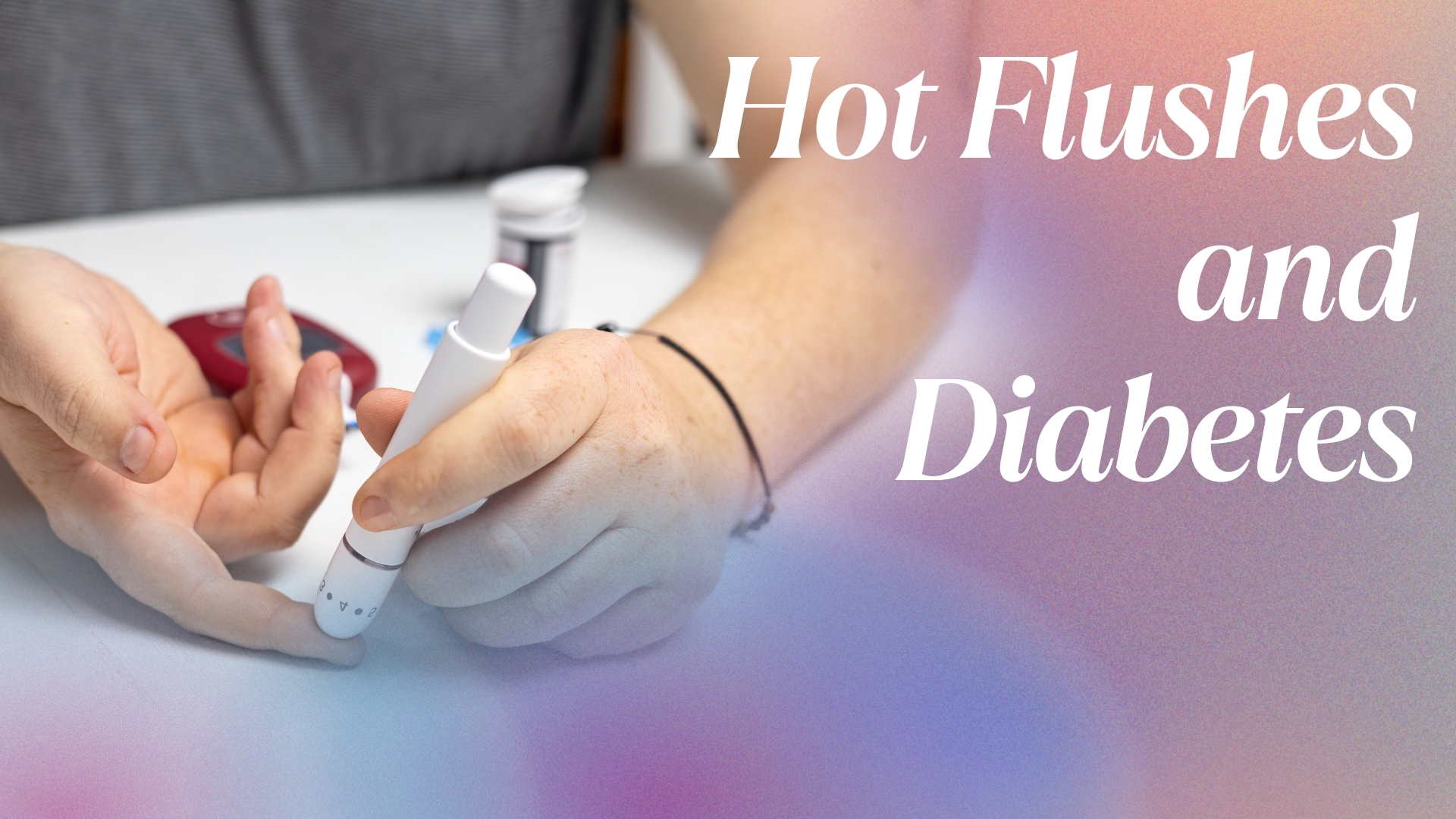
Crossing 30s mark many changes that are significant in the health-life of countless women; where the releasing of estrogen and progesterone becomes utterly low. These are the hormones responsible for regulating the period cycle, and not just that, these hormones also determine how your cells respond and react to the levels of insulin.
During the transition to menopause, fluctuations in estrogen and progesterone levels can impact your blood sugar levels, causing them to fluctuate as well. If left uncontrolled, the rise in blood sugar levels can result in complications associated with diabetes, such as nerve damage and even vision loss.
During menopause, certain bodily changes increase your susceptibility to type 2 diabetes which include:
1. Metabolic Rate Deceleration: During menopause, your metabolism decelerates, reducing its efficiency in burning calories, which may lead to weight gain.
2. Abdominal Weight Gain: Weight acquired during menopause tends to concentrate in the abdominal region, heightening the risk of insulin resistance.
3. Impaired Insulin Secretion: Menopause may impair the body’s capacity to release insulin efficiently.
4. Reduced Insulin Sensitivity: Cells exhibit diminished responsiveness to the insulin produced by your body, contributing to insulin resistance.
Yes, diabetes and menopause often intersect, which in turn influence each other’s symptoms and management. For instance, the connection between hot flashes and sleep disruption exemplifies that Hot flashes, which are prevalent during menopause, disrupt sleep, hindering restfulness.
However, insufficient sleep can impact blood sugar regulation as well, potentially worsening diabetes symptoms. Studies suggest that sleep deprivation may induce insulin resistance and elevate blood sugar levels, complicating diabetes management. Thus, managing both menopausal symptoms and diabetes comprehensively is crucial for overall health.
Upon examining data from over 150,000 postmenopausal women, researchers discovered that 33% of them encountered hot flashes during menopause. Furthermore, the occurrence of hot flashes correlated with an 18% higher likelihood of developing diabetes. The longer the Hot Flash episode, the higher the risk for diabetes,
Some tips that help you tackle menopausal Hot Flashes when you have Diabetes:
There lies a holistic approach for women to manage Hot Flashes and Diabetes, let’s look at some of them in detail:
1. Constantly keep an eye on your blood sugar levels:
Hot Flashes can be prevented when you keep the blood sugar levels within a normal range and making sure that it doesn’t go up that level in a way to reduce the risk of possible complications that might be associated with it.
2. Stay Comfortable:
Staying comfortable starts with wearing layered clothing for easy adjustment as needed apart from utilizing fans or air conditioning to maintain a cool environment.
3. Prevent Triggers:
Hot flashes can be triggered by factors like spicy foods, caffeine, and alcohol. Steering clear of these triggers can lower both the frequency and intensity of hot flashes.
Relaxation Techniques:
Stress can worsen hot flashes. Try activities like yoga, meditation, or deep breathing to relax and reduce hot flashes.
Hormone Therapy:
Hormone therapy (HT) can help manage hot flashes by replacing estrogen. But, if you have diabetes, talk to your doctor first, as it might affect blood sugar levels.
Keep in mind that understanding the relationship between diabetes and hot flashes is crucial for managing both conditions effectively and improving overall well-being. Diabetes can exacerbate hot flashes due to its impact on temperature regulation, potentially leading to complications like dehydration or low blood sugar levels. Women with diabetes can mitigate hot flashes by adopting a healthy lifestyle, understanding risk factors, and collaborating with healthcare providers on treatment plans. Utilizing of smart tools for symptom tracking can further aid in managing hot flashes and diabetes.
Resources :
https://www.healthline.com/health/type-2-diabetes/menopause-type-2-diabetes
Stay up to date with our offers and events
Copyright © 2024 Unpause Ru Medical. All rights reserved.
Powered by TKV Creatographics